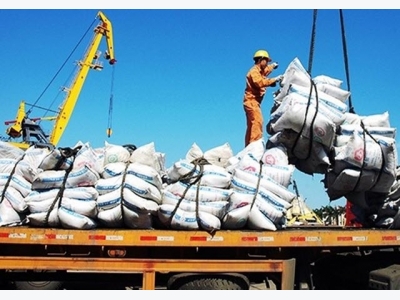Seafood, apparel stocks seen benefiting from CPTPP

Enterprises in the aquaculture, garment and textile sectors are expected to benefit from the newly signed Comprehensive and Progressive Agreement for Trans-Pacific Partnership (CPTPP) while agricultural and financial firms will face stronger competition.
Eleven Pacific Rim countries signed the CPTPP in Chile last week, which is the revised version of the Trans-Pacific Partnership (TPP) trade pact. The signing of the deal went on despite the U.S. withdrawal from TPP in January 2017.
The signatories are Singapore, Australia, Brunei, Canada, Chile, Japan, Malaysia, Mexico, New Zealand, Peru and Vietnam.
According to Viet Dragon Securities Company, seafood and apparel stocks such as TCM, TNG, EVE, VHC and FMC made sharp gains on the morning of last Friday, helped by the signing of the pact. The sectors benefiting the most from the high-standard trade pact include garment/textile, seafood, logistics and real estate.
For the apparel industry, Vietnam’s exports to CPTPP member economies account for 13% of the total, way below 38% to the U.S. alone. Among the 10 other members, Japan is Vietnam’s biggest importer with around US$4 billion a year. TCM and GMC are the listed apparel enterprises with strong exports to Japan.
The seafood sector has a better outlook as CPTPP countries import around US$2 billion worth of seafood from Vietnam a year, making up 23% of the nation’s total shipments. Japan alone accounts for over 15% and Vietnamese exporters of shrimp, octopus and tuna products will see a brighter future.
The real estate sector will also get a boost as huge foreign investment is expected to flow into the country. The demand for infrastructure at industrial zones, high-class apartments, resorts, golf courses and offices for lease is projected to surge.
But businesses in the agriculture, animal feed, pharmaceutical and finance sectors will be facing tougher competition, said the brokerage firm.
More agricultural, dairy, sugar and feed products from Australia and New Zealand will enter the local market. Pharmaceutical firms will have to compete with foreign players due to lower import tariffs.
Banks from Japan, Canada and Australia will be able to sell their products and services in Vietnam without having to establish branches in the country, putting pressure on domestic banks.
Last Friday, after reaching an 11-year intraday high of 1,135 points early in the morning, the VN-Index closed down less than a tenth of a percentage point. For the entire week, the index rose 2% for the fourth week in a row.
GAS was the largest contributor to the day’s loss after the Brent crude oil price fell in overnight trade for a second day. Other energy stocks also sold off, including PVD, PVS and PLX.
Có thể bạn quan tâm
 VASEP says DOC’s antidumping rate on shrimp inaccurate
VASEP says DOC’s antidumping rate on shrimp inaccurate Vietnam’s shrimp exports to the U.S. market reached US$659 million last year, falling by 7% against the previous year due to antidumping duties
 Seafood joins ‘billion club’ as Vietnam’s Jan-Feb exports top $33.6bn
Seafood joins ‘billion club’ as Vietnam’s Jan-Feb exports top $33.6bn Vietnam raked in $1.1 billion from seafood exports in two months
 Cà Mau’s crab export to be developed as strategic aquatic product after shrimp
Cà Mau’s crab export to be developed as strategic aquatic product after shrimp 87 river mouths and 100,000 ha of mangrove forests, the southernmost province of Cà Mau is aiming to develop crab farming to make the crustacean